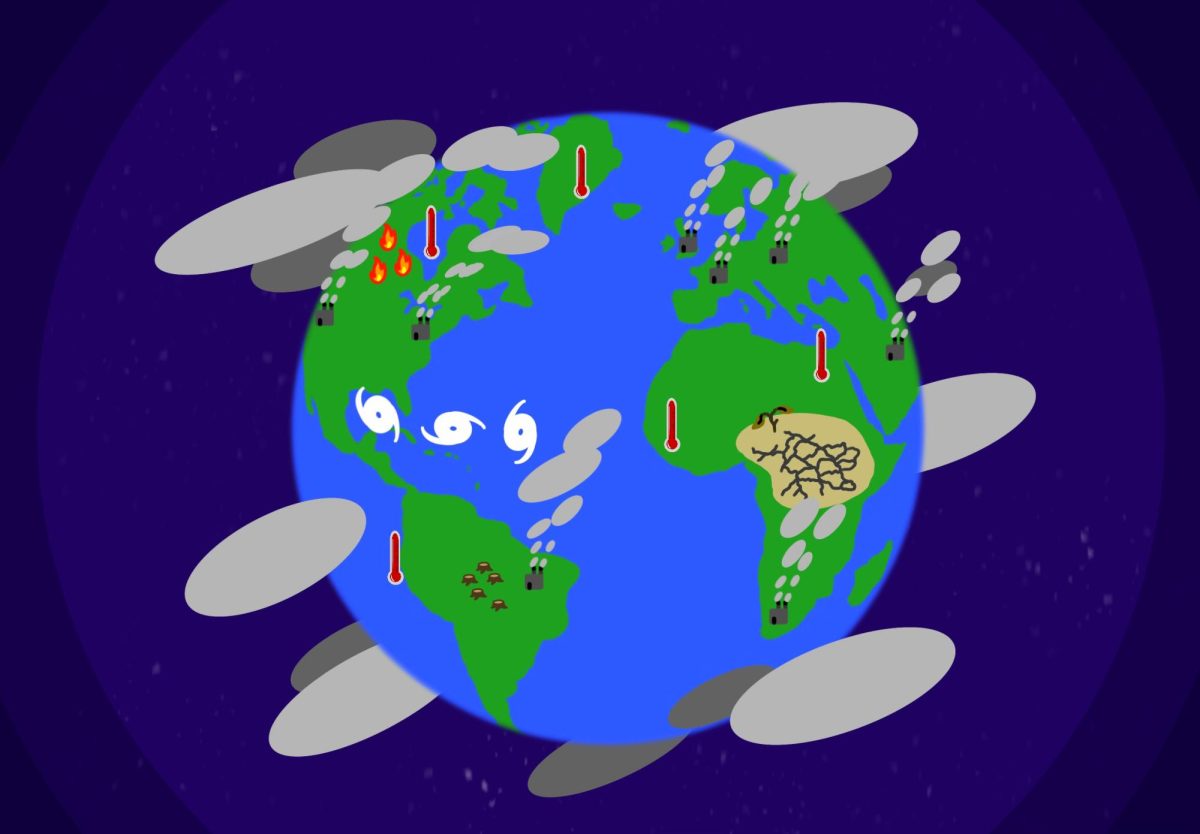On Sept. 27, I woke up to see cars crushed by fallen trees and the driveway in front of the Ecocabins completely flooded by Hurricane Helene. It was the first time many Furman students, myself included, experienced a tropical storm. A hurricane traveling this far inland is not normal — this was a direct consequence of global warming.
America is seeing the impact that environmental disasters can have on underprepared communities. According to a report by World Weather Attribution, climate change will continue to increase the risk of these disasters, which the World Bank has found are especially devastating to those living in countries and communities with lower socioeconomic status. As we look at the effects of Hurricane Helene in our own and surrounding communities, it is important to recognize the unequal impact of these events.
Climate disasters like Hurricane Helene are examples of environmental injustice, the inequitable distribution of the effects of climate change. The increased magnitude and number of climate disasters, driven by global warming, impacts people in lower socioeconomic classes substantially more than those in a higher socioeconomic class, despite the latter being the primary contributors to climate change.
Climate change is primarily caused by the world’s wealthiest people. According to Oxfam, the richest 1% of the world population emitted as much carbon dioxide, the primary driver of climate change, as the poorest 67% of the population, roughly five billion people, in 2019.
These inequalities are exhaustive and also impact many Americans, such as the individuals living in rural western North Carolina. These communities already struggle with poverty, affecting their health care access. Climate disasters exacerbate these issues by destroying homes, destroying livelihoods and compromising physical safety, like we have seen with Hurricane Helene.
We should feel a call to action when we explore environmental injustice. One way we can act is by changing our habits — contrary to popular belief, it does matter. The average American consumes more natural resources than people from any other developed country. According to a study by Earth Overshoot Day, if everyone in the world were to consume as many resources as the average American, 5.1 Earths would be needed to support that consumption. Collectively decreasing our individual consumption would make a large impact.
As someone who tries to live more sustainably, I brought my ecological footprint down to a little less than three Earths by tracking my footprint. Lowering it was not as hard as you may think. I lowered mine by almost two Earths by limiting my water usage, reducing my weekly meat consumption, minimizing online shopping, repurposing and reusing things, unplugging devices not being actively used, turning the lights off and making other easy changes.
We can also advocate for people who face environmental injustice. Voting in your local and national elections with these injustices at the forefront of your mind is a form of advocacy, especially as Americans. The U.S. is the one of the leading emitters of carbon per capita, so voting and making changes locally has a global impact.
Additionally, you can advocate by speaking to others about the devastating effects of climate change. The least we can do is acknowledge environmental atrocities that others have to face daily and empathize with others. Advocacy creates hope.
It can be exhausting to change your actions and speak about the large inequalities people face. It is easy to let motivation and hope shift into guilt and anxiety, so remember to approach your life with gratitude. Let Helene be a gentle reminder of all we have and how easy it is to lose it. Being grateful for the life around us will create the hope that will drive us far. When I do this, I find my breath becomes lighter, my energy slowly renews and I find stable footing.
In Helene’s devastation, and with potentially more to come in the future, find gratitude for your life and passion to create more lives like it. You don’t have to carry this burden solely on your shoulders — we can all carry it together by making meaningful adjustments in our lives, advocating for change and being grateful for the lives we live.



































